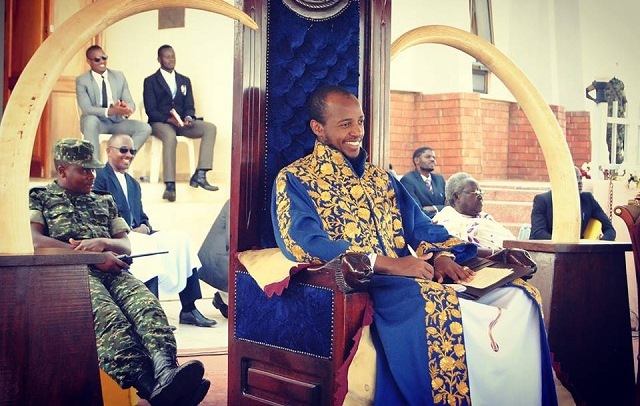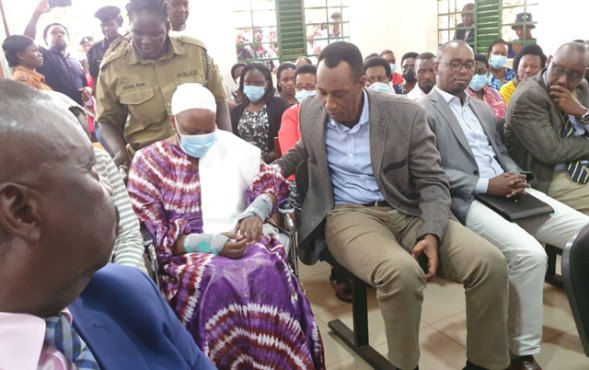The anticipation mounts as Tooro Kingdom prepares for the revered Empango celebrations, honoring the 29-year reign of the youngest monarch, Omukama Oyo Nyimba Kabamba Iguru Rukiidi IV.
The festivities commence with the sighting of the new moon, symbolizing gratitude and the enduring bond between the king and his people.
Deep-rooted in tradition, the Empango derives its name from the royal drums of Tooro Kingdom, tracing back to the ancient Chwezi dynasty of Bunyoro Kitara.
Each monarch is bestowed with a distinct drum, a symbol of regal authority and the kingdom’s spiritual and cultural heritage.
Rev. Clovis Kyalimpa, a respected figure from the Bayisaza clan, shares profound insights into the significance of the royal drums and the enduring role of the Basiita clan in safeguarding these sacred traditions.
Their historical connection to the Bachwezi dynasty adds layers of reverence to the ceremonial drumming and moon sightings.
At the hallowed grounds of Kaswa within Tooro’s main palace, the Basiita clan performs the Empango ritual, marking the commencement of the king’s authority.
The strict protocols and gender-specific roles underscore the solemnity of the occasion, emphasizing the sanctity of the king’s reign and the kingdom’s defense.
Celebrating regal splendor
The pinnacle of the Empango unfolds as Omukama Oyo receives the royal regalia at the Musanga, signaling the commencement of joyous festivities.
From traditional meetings with chiefs to symbolic cow milking and feasting, the celebration encapsulates the essence of Tooro’s vibrant culture and communal harmony.
As the Empango unfolds, myths surrounding Omukama Oyo’s birth add an aura of mystique to the proceedings.
Reverend Kyalimpa sheds light on the symbolic baptism of the monarch, dispelling legendary tales and emphasizing the king’s destined role in the kingdom’s narrative.
Through the Empango of Tooro, the kingdom’s rich cultural tapestry is vividly showcased, reaffirming the continuity of ancient traditions and the enduring legacy of Tooro’s heritage.
The celebration serves as a poignant reminder of unity and peace, echoing the traditional adage, “Mirembe Nzaire karamare enzaire twino Obusinge.”












